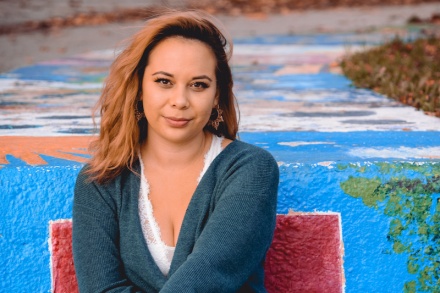Field Education During a Pandemic: Providing Spiritual Services to All
May 5, 2021

NorthShore University HealthSystem
Sometimes, Chaplain Ida Oliver can tell right away if one of her clinical pastoral education (CPE) students is likely to become a hospital chaplain.
“Some students, right out of the gate, show they are cut out for chaplaincy,” said Oliver, who is the coordinator for CPE at NorthShore University HealthSystem, which includes Evanston, Glenbrook, Skokie, and Highland Park Hospitals.
According to Oliver, Jordan Aspiras is one of these students. A few weeks after Aspiras started her CPE in October 2020, it became clear to her that Aspiras would be a talented and compassionate chaplain — even in the midst of a world-wide pandemic. “Her attitude, her interest, and her dedication to learning stood out immediately,” Oliver said.
Part of the Department of Spiritual Care Services, chaplains at NorthShore University HealthSystems provide spiritual services to anyone associated with the hospitals. “We see patients who are referred to us by doctors, physical therapists, nurses, and social workers,” Oliver said. “We also support loved ones of patients, as well as doctors, nurses, and staff members who have a crisis or need to talk. This has been especially true during COVID-19.”
Originally, Aspiras considered being a pastor when she enrolled at Garrett-Evangelical Theological Seminary in the fall of 2019, but she changed her mind when Lisl Heymans Paul, associate director of field education, suggested she consider a placement as a chaplain.
Aspiras was intrigued and ultimately agreed. “I’m really glad that I said yes,” said Aspiras, who grew up in San Jose, California and received her bachelor’s degree from Baylor University in Waco, Texas.
One of the things Aspiras said she likes about hospital chaplaincy is that it has an interfaith aspect to it. “At one point, I was paged to provide prayer for a Muslim COVID-19 patient,” she said.
“I love chaplaincy because you really put your own beliefs aside and provide what the patient and their loved ones need.”
“Her compassion and her commitment to care for everyone is what has made her so successful,” Oliver said.
Completing her clinical pastoral education during a pandemic has been difficult, Aspiras said. When COVID-19 first hit, students were not allowed in the hospitals, but by the time Aspiras started her field education, that restriction had lifted.
Like everyone else in the hospital, she has to wear personal protective equipment all the time. Often, she cannot enter a patient’s room and has to talk and pray with them over the telephone, which can be really hard. “Praying over the telephone was not something that I saw myself being able to do well, but now, because of COVID-19, it is something I do consistently,” she said.
Yet, even with the many challenges brought on by the pandemic, Aspiras said that her CPE experience has allowed her to seriously consider chaplaincy. “It made me realize that this is what I’m here to do,” she said.

